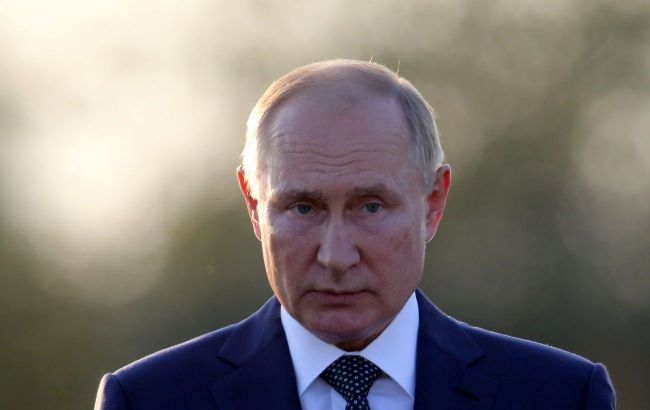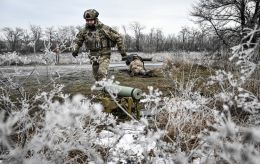Nostalgia or demonstration? Objectives of Putin's visits to North Korea and Vietnam and potential arms acquisition
 Photo: Vladimir Putin will soon visit North Korea and Vietnam (Getty Images)
Photo: Vladimir Putin will soon visit North Korea and Vietnam (Getty Images)
Russian President Vladimir Putin is visiting North Korea and Vietnam this week. The officially stated goal is to sign bilateral documents.
Find out more about what else might be behind Putin's trips to these Asian countries in the material by RBC-Ukraine.
Contents:
- Kremlin's reaction to Putin's visits
- Why Putin visits North Korea
- What is the meaning of the visit to Vietnam
Kremlin's reaction to Putin's visits
Putin will fly to North Korea on June 18, with the main events scheduled for the following day. Talks will be held in an expanded format, along with informal discussions with Kim Jong Un. Additionally, the program includes a concert and a wreath-laying ceremony at the Monument to the Liberation of Korea by the Soviet army.
According to his aide Yuri Ushakov, the parties will discuss cooperation in economics, energy, transport, agriculture, interregional ties, and security issues. He also added that Moscow values North Korea for its understanding of the "real reasons" and support for the Russian-Ukrainian war.
Following the negotiations, Putin and Kim Jong Un will make statements to the media.
On June 19, Putin will arrive in the Vietnamese capital, Hanoi. There, he will meet with the General Secretary of the Communist Party's Central Committee Nguyen Phu Trong, President Nguyen Xuan Phuc, Prime Minister Pham Minh Chinh, and National Assembly Chairperson Vuong Dinh Hue.
A meeting with graduates of Soviet and Russian universities is also planned.
"This visit symbolizes that our relations are quite advanced and have a history of over 30 years. This year, June 16 marks the 30th anniversary of the signing of the Treaty on the Principles of Friendly Relations," added Ushakov.
The signing of approximately 20 documents and a joint statement confirming the principles of cooperation between Russia and Vietnam are expected.
Why Putin visits North Korea
Russia's relations with North Korea are more than understandable because Soviet troops played a major role in the Korean War of 1950-1953 and helped create the DPRK. Since then, Moscow has remained an important trade partner.
Putin's upcoming visit to Pyongyang, the first and last since 2000, is a response to Kim Jong Un's visit to the Vostochny Cosmodrome in September 2023. Following this trip, reports emerged of artillery shell deliveries for the war against Ukraine, with North Korean ballistic missiles being used by Russians in winter.
According to South Korean Defense Minister Shin Won-sik, Pyongyang may have supplied Russia with up to 5 million shells and dozens of ballistic missiles. He believes that Putin may request even more weapons, possibly in exchange for military technology used in spy satellites, tanks, and airplanes.
Putin and Kim Jong Un are likely to promise each other support once again, according to The Washington Post. The visit will also emphasize the durability of dictatorial regimes. As for arms deliveries, North Korea has a large stockpile of Soviet-caliber shells. It also has manufacturing capabilities that will help Russia maintain a high rate of artillery fire in Ukraine while it addresses its own production issues.
Political scientist Volodymyr Fesenko notes that this is a return visit, following diplomatic tradition. There were no such visits previously because North Korea is under international sanctions, but Russia has long violated sanctions by expanding military ties.
"However, the visit symbolizes and demonstrates the level and scale of Russia's cooperation with North Korea. Many politicians and experts talk about the so-called 'axis of evil,' which has formed around arms deliveries from Iran and North Korea. Putin's personal visit to North Korea confirms that they are active partners in arms exchange and economic cooperation," he told RBC-Ukraine.
He also does not trust information about the delivery of 5 million North Korean shells. Most likely, South Korea's estimates are exaggerated. However, even the confirmed 2 million shells, as verified by various sources, unfortunately, represent a significant contribution by North Korea to Russia's war against Ukraine.
On the other hand, Moscow also provides some weapons and technologies in exchange. This poses a threat to peace in East Asia, as Pyongyang behaves aggressively toward South Korea and Japan, including nuclear threats and missile launches into the sea.
"So, this visit is a demonstration of a partnership between two aggressive dictators. That's the main point. I think there will be agreements on mutual arms supplies. But even the cooperation itself poses a threat to both Ukraine and peace in East Asia," Fesenko added.
What is the meaning of the visit to Vietnam
Putin's first visit to Vietnam took place back in 2001. It resulted in a declaration of strategic partnership. Since then, he has been to Hanoi many times, most recently in 2017 for the Asia-Pacific Economic Cooperation (APEC) summit.
The two parties have a lot to discuss. Due to Western sanctions against Russia last year, trade was reduced by half to $3.6 billion compared to 2021. Russian media write that Putin is going, in part, to give a new economic impetus.
Reuters notes that Vietnam refused to participate in the Global Peace Summit on Ukraine, which took place last weekend but sent a representative of its Foreign Ministry to the BRICS meeting.
The United States, as Vietnam's main trading partner, is reacting sharply negatively.
"No country should give Putin a platform to promote his war of aggression and otherwise allow him to normalize his atrocities. If he is able to travel freely, it could normalize Russia's blatant violations of international law," said a representative of the US Embassy in Hanoi, referring to the full-scale war against Ukraine.
It should be noted that in March 2023, the International Criminal Court (ICC) in The Hague issued an arrest warrant for Putin in connection with his suspected involvement in war crimes in Ukraine. However, Vietnam is not a member of the international court.
In addition to agreements in sectors such as trade, investment, technology, and education, the parties are expected to focus on more sensitive issues. The talks will focus on Russian arms supplies, energy issues, and intergovernmental payments, Reuters reports, citing sources.
According to Fesenko, the situation with Vietnam is similar to that with DPRK. The visit cannot be called unexpected, it is planned, but it is quite indicative.
"Because Vietnam is a longtime partner and ally. And an influential country in Southeast Asia. At one time, there was a Soviet naval base there. And as far as I know, Russia is trying to restore it. Therefore, Putin's visit is primarily aimed at increasing his influence on countries in this region. To try to raise his global status," the political scientist explains.
Putin is speculating on nostalgia for Soviet times and showing that Russia is ready to be a partner like the USSR used to be. Vietnam does not support the war in Ukraine and does not recognize the occupied territories. But it is similar to many other countries in the Global South in terms of economic and military cooperation.
As for arms deliveries from Vietnam to Russia, it is possible, but only in theory.
"I don't think weapons are the main goal. Of course, Vietnam has considerable stockpiles. Another thing is that Hanoi is cautious about its security. It has a territorial dispute with China. Few people remember that in 1979 there was a short but quite intense war between them. Therefore, I do not think that Vietnam can supply serious weapons to Russia. Unless it is Soviet-caliber shells, as in the case of the DPRK. The issue of supplying certain types of ammunition may be considered," Fesenko said.
Sources: materials by Reuters, The Washington Post, and comments by political scientist Volodymyr Fesenko.

